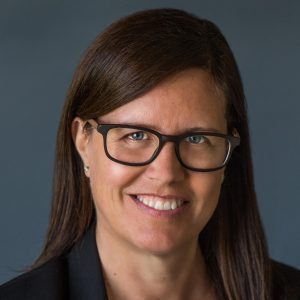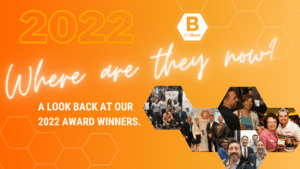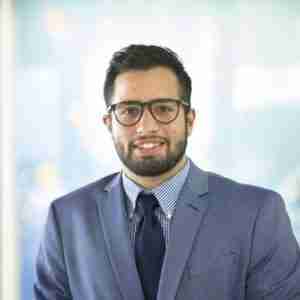
5 Questions with James Bucky Polk, Chief Commercial Officer, Scientific Bioprocessing
“5 Questions With…” is a weekly BioBuzz series where we reach out to interesting people in the BioHealth Capital Region to share a little about themselves, their work, and maybe something completely unrelated. This week we continue the series with James Bucky Polk, Chief Commercial Officer, Scientific Bioprocessing.
After 25 years with an extensive track record of success in the Medical Device space, Bucky Polk joined SBI in July 2020. He is a well-rounded executive with a vast collection of skills and experiences. Colleagues and customers have said that his authenticity, candor, and ability to connect with people are what set him apart. In his most recent role for Philips, he was responsible for the customer engagement of the most influential global Interventional Cardiologists, Vascular Surgeons, and Interventional Radiologists.
He believes that the SBI core value of pHun is a critical component to internal and external relationships. Bucky holds a Bachelors of Science from Skidmore College, where he played ice hockey for all 4 years (and still plays!). Originally from Long Island, NY, he has called San Francisco, Seattle, and Chicago home before moving to Colorado in 2013. He lives in the south Denver area with his wife, two children, and two dogs.
1. Please introduce yourself to our audience with a look back at your education, training, and career.
I’m fairly new to the industry. I joined SBI in July 2020 after 25 years in the Medical Device Industry. I graduated from Skidmore College in Saratoga Springs, NY, in 1989 with a BS in Business. After cutting my teeth in sales at Eastman Kodak & Dentsply Implant in the early ’90s, I spent 1996-2020 at Boston Scientific, Abbott, and Spectranetics (purchased by Philips in 2017). We supported doctors who were working to clear arterial blockages all over the body: carotid arteries to avoid stroke, coronary arteries to avoid heart attacks, and leg arteries to avoid amputation.
Starting in 2012, I added a great deal of experience inside the HQ, learning about an organization’s inner workings. I’m a far better commercial leader for having taken on those various challenges and getting “comfortable being uncomfortable.”
2. Explain what exactly Scientific Bioprocessing, Inc. (SBI) does and why it’s important to the industry.
At SBI, we make optical sensors that can be used in small vessels like Petri dishes all the way up through large vessels and in bioreactors. We believe we are critical to the industry because poor cell culture yields, research, and a scalable process all need to be addressed and improved.
We know the industry has a long way to go when it comes to actionable data. We’re excited to be leading this effort in the cell culture discovery phase and adding easy-to-use sensors. Our first step is to show all these wonderful researchers what’s possible with optical sensing.
3. In recent years, biohealth has been used beyond biotech and pharma to include a broader world than just biotech or pharma. Medical Devices, Digital Health, etc. How does SBI fit into the larger biohealth world?
I looked up the definition of biohealth because I think it can mean many things to many people – 1: of or relating to biomedicine. 2: of, relating to, or involving biological, medical, and physical science.
A very broad definition (!), which can easily describe all the areas where SBI can play. Having come from the cardiovascular space, I’ve been surprised to see the numerous areas where the overlap will soon exist. For example, a medical device that previously had little to no customization to a patient will soon be utilizing gene therapy or stem cells to offer personalized medicine. SBI can aid in the process to maximize scale, reproducibility, and yields helping get the industry to realize the promises of personalized care!
Our vision at SBI is the development of tools and technologies that can help connect the dots between early cell culture conditions and parameters to preclinical in vivo testing all the way to patient outcomes, thereby spanning the entire biohealth spectrum. We believe that such connectivity and predictive power can be made possible through advanced sensing platforms and machine learning algorithms.
4. Where do you see the biggest potential for growth in your space, and why?
We’re excited and surprised every day that many researchers and product development engineers, and scientists don’t know that optical sensing is even possible in small-scale cultures.
Additionally, many other customers are just learning why they may want to care about optical sensing. Our biggest potential is to help them know there is a better way! Then we can take them on a journey of better cell culture yields, more predictability, and scalability.
We are continuously investing in expanding our sensing platform and adding instrumentation to culture systems of all sizes coupled with data insights platforms so our customers can fully realize the potential of real-time sensing. We see tremendous growth potential by making these technologies easy to use, fully accessible, and rich with actionable insights.
5. If you could have any Superpower. What would it be and why?
I’d like to have the superpower to make cell phones temporarily disappear at certain times. I fully support them for communication and at-our-finger-tips information, but I think they’ve also limited our imagination and ability to be in the moment. Instead of enjoying nature, a concert, a sporting event, or the like in person, our society is more concerned with recording it. I’d love to see the cell phones disappear so that people remember to let the image or video be in our mind and not on our recording device.
Thank you James Bucky Polk, Chief Commercial Officer, Scientific Bioprocessing, for participating in the ‘5 Questions with BioBuzz’ series, and stay tuned for more interviews with others from across the BioHealth Capital Region and beyond.





